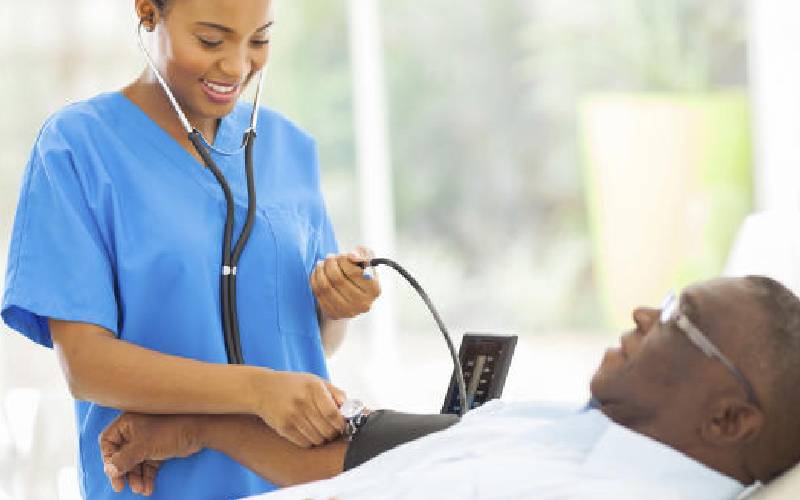×
The Standard e-Paper
Fearless, Trusted News

Getting a high blood pressure reading at the doctor’s office can be tough on anybody. Although high blood pressure is a serious health concern, it’s often referred to as a silent killer because it can creep on you without any symptoms. High blood pressure (HBP or hypertension) increases your risk of heart attacks, stroke, aneurysms, kidney failure and cognitive decline. High blood pressure is a major cause of premature death worldwide.